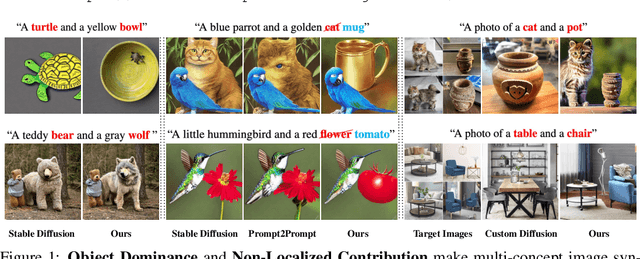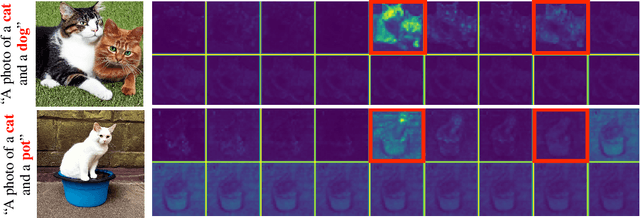Multi-Concept T2I-Zero: Tweaking Only The Text Embeddings and Nothing Else
Paper and Code
Oct 11, 2023



Recent advances in text-to-image diffusion models have enabled the photorealistic generation of images from text prompts. Despite the great progress, existing models still struggle to generate compositional multi-concept images naturally, limiting their ability to visualize human imagination. While several recent works have attempted to address this issue, they either introduce additional training or adopt guidance at inference time. In this work, we consider a more ambitious goal: natural multi-concept generation using a pre-trained diffusion model, and with almost no extra cost. To achieve this goal, we identify the limitations in the text embeddings used for the pre-trained text-to-image diffusion models. Specifically, we observe concept dominance and non-localized contribution that severely degrade multi-concept generation performance. We further design a minimal low-cost solution that overcomes the above issues by tweaking (not re-training) the text embeddings for more realistic multi-concept text-to-image generation. Our Correction by Similarities method tweaks the embedding of concepts by collecting semantic features from most similar tokens to localize the contribution. To avoid mixing features of concepts, we also apply Cross-Token Non-Maximum Suppression, which excludes the overlap of contributions from different concepts. Experiments show that our approach outperforms previous methods in text-to-image, image manipulation, and personalization tasks, despite not introducing additional training or inference costs to the diffusion steps.
 Add to Chrome
Add to Chrome Add to Firefox
Add to Firefox Add to Edge
Add to Edge